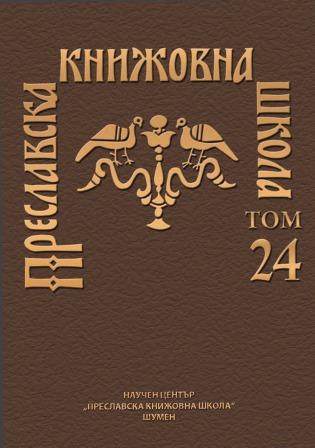ВЛАДЕТЕЛЯТ ОРГАНА В „ИМЕННИКА НА БЪЛГАРСКИТЕ ХАНОВЕ“
THE RULER ORGANA IN THE NOMINALIA OF THE BULGARIAN KHANS
Author(s): Stanislava TsanevaSubject(s): History, Ancient World
Published by: Шуменски университет »Епископ Константин Преславски«
Keywords: Organa; Heraclius; Kubrat; Hernach; Persia; Avar Khaganate
Summary/Abstract: The article contains a review and reassessment of the available data on the Bulgarian ruler Organa in the writings of Bishop John of Nikiu, Patriarch Nikephoros and the Arab pre-Islamic poet al-A'sha, both in the internal political plan and in the context of Byzantine-Avar and Byzantine-Persian relations. From the critical analysis of the preserved Arabic translation of John of Nikiu’s chronicle, it can be concluded that the original form of the name “Organa” was actually Hernach, equivalent to the name Irnik in the Nominalia of the Bulgarian Khans. In turn, this suggests a possible (and it was deliberately done) contamination between two personalities – the youngest son of Attila, who lived in the second half of the 5th century, and the Bulgarian ruler of the same name from the first half of the 7th century. There is no reason to doubt that Organa-Hernach was granted a patrician title by Heraclius in 619 in order to exert pressure in the rear of the Avar Khaganate, but despite the popularity of these hypotheses, he is not identical neither with the short-reigned Turkic Khagan Mohodu-hey, nor with Regent Gostun. The latter is obviously an Avar creature and came to power precisely after the dethronement of the Bulgarian ruler around 624 – the beginning of 625. His placement at the head of Bulgaria practically marked the loss of its political independence, but the occupation regime ended after only few years with the return of Kubrat in the first half of 628.
Journal: Преславска книжовна школа
- Issue Year: 2024
- Issue No: 24
- Page Range: 433-456
- Page Count: 24
- Language: Bulgarian

